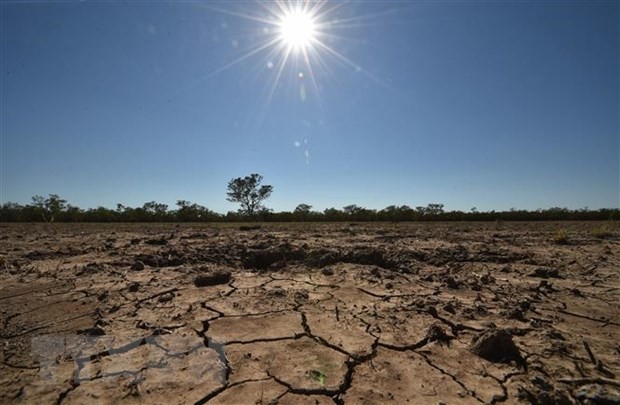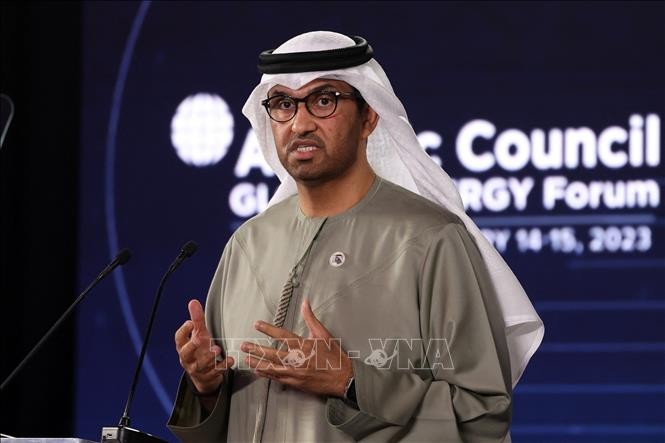(VOVWORLD) - The International Climate and Energy Summit took place last Sunday in Madrid, prior to the 28th UN Climate Change Conference (COP28) in Dubai. After repeated warnings from the UN that countries are falling behind in their commitments to combat climate change, the Summit was an opportunity for countries to review their commitments and speed up actions to prevent further global warming.
 (illustrative photo) (illustrative photo) |
The Summit brought together 40 ministers, senior officials, and heads of the world’s leading environment and energy organizations. High on the agenda were investment in renewable energy and funding for developing countries to reduce emissions and develop clean energy.
Practical ideas
Attendees agreed on an initiative to build a grand coalition to remove subsidies and incentives for fossil fuels. The initiative was proposed by Dutch Minister for Climate and Energy Policy Rob Jetten, and the Dutch government will lobby for the establishment of the coalition before COP-28, which will take place November 30 to December 12 in Dubai.
Dr. Fatih Birol, Executive Director of the International Energy Agency, underlined the importance of commitment to this idea. He said that building a clear roadmap to eliminate fossil fuels is one of the five conditions that will determine the success of COP28.
Other conditions are tripling the investment in renewable energy, doubling energy efficiency, reducing geopolitical tensions, and building a financial support mechanism for green energy in developing countries. Teresa Ribera, Spain’s Minister of Energy, said that forming a coalition and eliminating incentives for fossil fuel is the first step.
 COP28 President Sultan Ahmed al-Jaber speaks at the conference in Dubai, UAE on February 14, 2023. (photo: AFP/VNA) COP28 President Sultan Ahmed al-Jaber speaks at the conference in Dubai, UAE on February 14, 2023. (photo: AFP/VNA) |
At a meeting of the petroleum industry in Abu Dhabi chaired by COP28 President Sultan Ahmed al-Jaber, 20 big oil and gas companies supported the call for net zero emissions by 2050 and near zero methane emissions by 2030.
At the Africa Climate Summit in September in Kenya, the UAE pledged to invest 4.5 billion USD to generate 15 GW of clean energy by 2030 in Africa. This seed money will help Africa mobilize an additional 12.5 billion USD from private sources and multilateral organizations to help Africa become a "renewable energy superpower".
Challenges remain
Under the Paris Agreement on climate change adopted at COP21 in 2015 in Paris, 195 members agreed to limit the increase in Earth's temperature to no more than 2 degrees Celsius above the pre-industrial level, and try to lower it 1.5 degrees Celsius.
Since then, countries have made progress in the fight against climate change, but after a slight decrease during the COVID-19 epidemic, emissions have increased again. Last year, greenhouse gas concentrations reached historic levels, 50% higher than pre-industrial levels. CO2 emissions from the energy sector hit a new record of 37 billion tons last year.
It’s estimated that to obtain net zero emission by 2050, from now until the end of this decade, coal emissions need to be reduced 67-82%, and the transition to cleaner energy sources should be 6 times faster. A key issue is helping the most vulnerable countries cope better with climate change. Advanced economies like the US, the EU, and China will have to become carbon neutral by 2050.
Right now countries are divided, with one side demanding that fossil fuels be phased out and the other side still dependent on fossil fuels to support a fragile economy. Geopolitical tensions are proving a major obstacle to climate action. The Summit in Spain was an attempt to get global climate change response back on track.